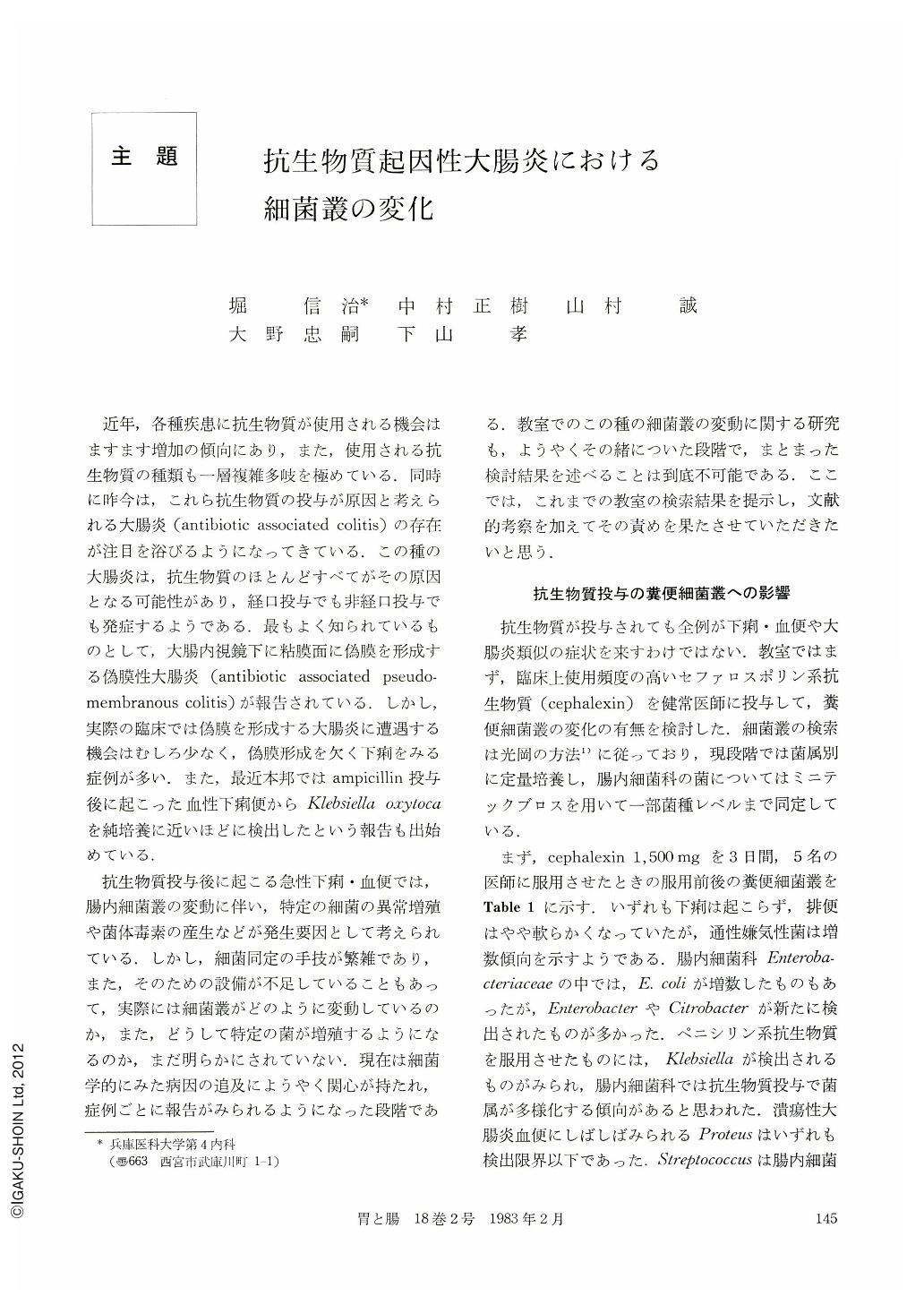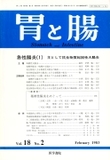Japanese
English
- 有料閲覧
- Abstract 文献概要
- 1ページ目 Look Inside
- サイト内被引用 Cited by
近年,各種疾患に抗生物質が使用される機会はますます増加の傾向にあり,また,使用される抗生物質の種類も一層複雑多岐を極めている.同時に昨今は,これら抗生物質の投与が原因と考えられる大腸炎(antibiotic associated colitis)の存在が注目を浴びるようになってきている.この種の大腸炎は,抗生物質のほとんどすべてがその原因となる可能性があり,経口投与でも非経口投与でも発症するようである.最もよく知られているものとして,大腸内視鏡下に粘膜面に偽膜を形成する偽膜性大腸炎(antibiotic associated pseudomembranous colitis)が報告されている.しかし,実際の臨床では偽膜を形成する大腸炎に遭遇する機会はむしろ少なく,偽膜形成を欠く下痢をみる症例が多い.また,最近本邦ではampicillin投与後に起こった血性下痢便からKlebsiella oxytocaを純培養に近いほどに検出したという報告も出始めている.
抗生物質投与後に起こる急性下痢・血便では,腸内細菌叢の変動に伴い,特定の細菌の異常増殖や菌体毒素の産生などが発生要因として考えられている.しかし,細菌同定の手技が繁雑であり,また,そのための設備が不足していることもあって,実際には細菌叢がどのように変動しているのか,また,どうして特定の菌が増殖するようになるのか,まだ明らかにされていない.現在は細菌学的にみた病因の追及にようやく関心が持たれ,症例ごとに報告がみられるようになった段階である.教室でのこの種の細菌叢の変動に関する研究も,ようやくその緒についた段階で,まとまった検討結果を述べることは到底不可能である.ここでは,これまでの教室の検索結果を提示し,文献的考察を加えてその責めを果たさせていただきたいと思う.
Antibiotics tend to be used more often than before for various diseases and their use is more complicated and variegated than before. There is quite a lot of them now. At the same time, attention has been focussed on colitis in all probability caused by the administration of these antibiotics. Such a kind of colitis should always been borne in mind as one of the side effects of antibiotics whatever. It is more apt to occur in elderly individuals or when the original disease is serious. It is greatly related to the imbalance of intestinal microflora along with the lowered immune mechanism.
Changes most often encountered are relative increase of fucultative anearobe and variegated species of enteric bacteria. Instead of E. coli, some other gram-negative rod-like bacilli at times become predominant as coliform bacilli. As for anaerobic bacilli, decrease in number of Bifidobacterium and Enterococci, and lactic bacteria was seen.
Bacteroides (especially, B. fragilis), which usually alter little, decrease in number in pseudomembranous enteritis. Under such circumstances proliferated Cl. difficile, which is resistant to antibiotics, produces toxin.
Therefore, sufficient administration of microbacterial preparation to prevent the above-mentioned alteration of the microflora is very important as is the effort to enhance the immunity of the patients according to their condition.

Copyright © 1983, Igaku-Shoin Ltd. All rights reserved.


